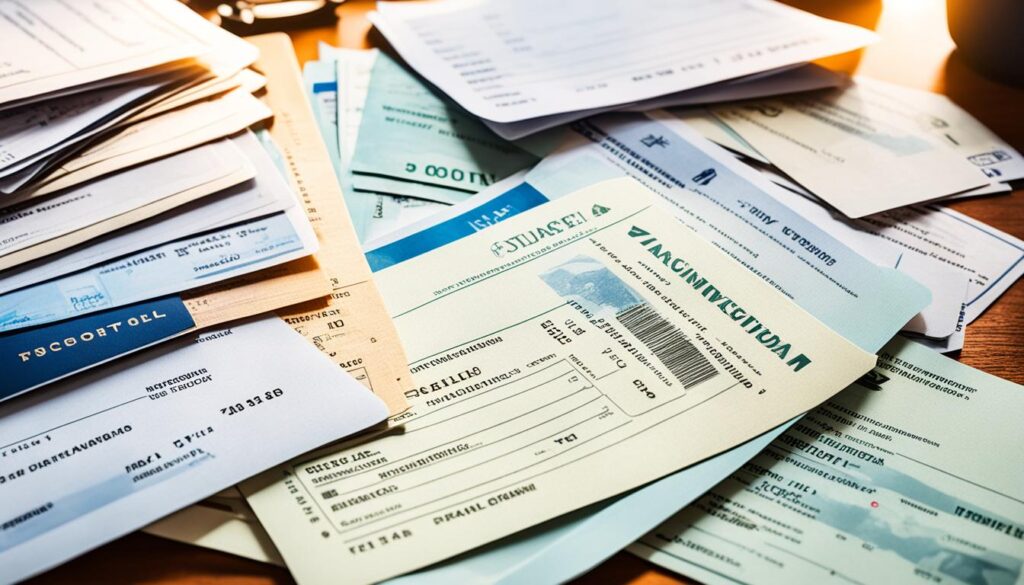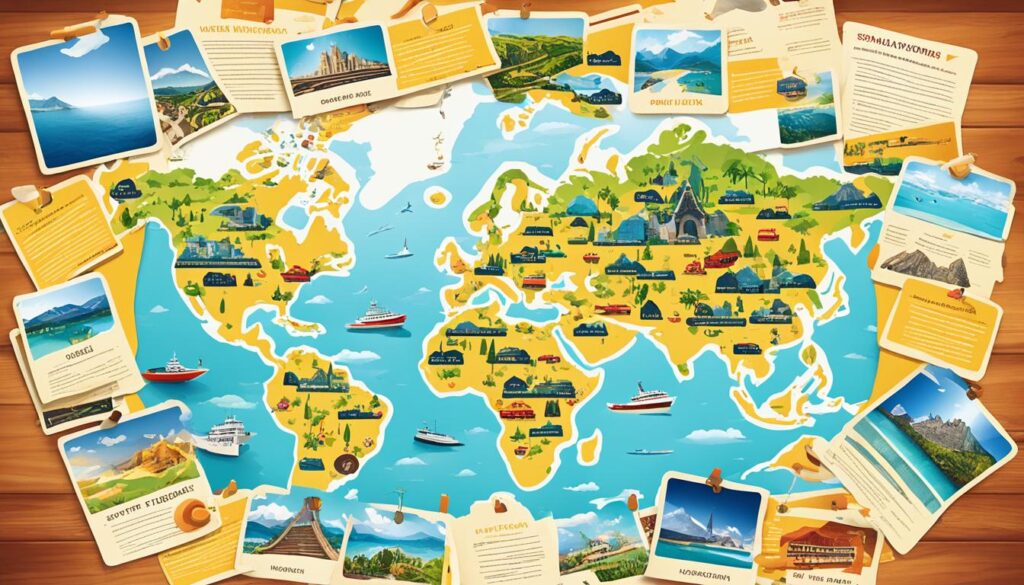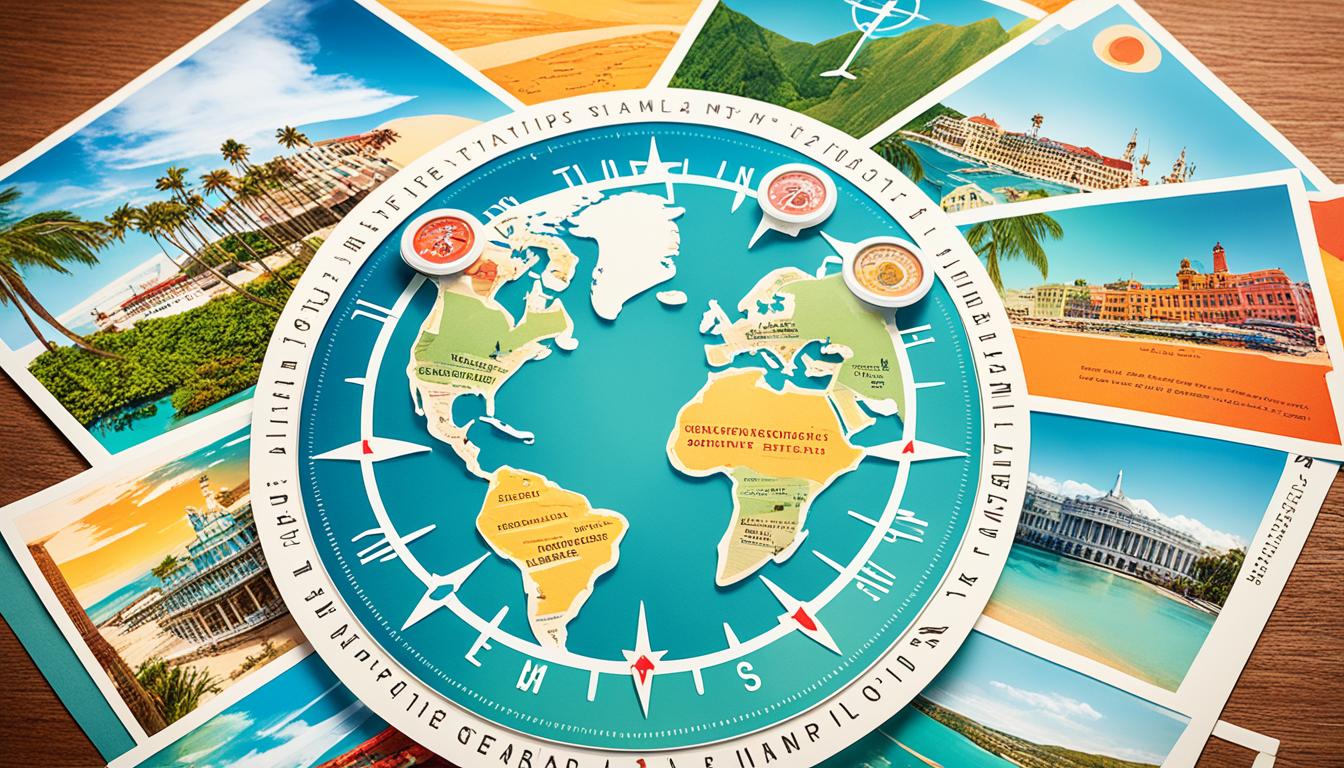Have you ever wondered how seasoned travelers manage to craft the perfect trip itinerary without hitting a single snag? Travel planning can indeed be an art perfected by those who venture frequently, and even more so by travel writers. With the aim to maximize vacations on oftentimes limited budgets and to meet writing deadlines, they have honed their skills in seeking out bargains and constructing itineraries that are both efficient and packed with enriching experiences.
As experts in travel planning, they have gathered a wealth of knowledge on using versatile planning tools, mapping out structured itineraries while keeping room for spontaneity, and preparing for the unexpected. Savvy travelers and professionals alike emphasize the importance of being open-minded during planning stages, considering alternative routes for better prices or experiences, as well as packing smartly to accommodate a variety of situations without being bogged down by excess luggage.
Key Takeaways
- Make use of versatile travel planning tools to structure efficient itineraries.
- Be open-minded during the initial stages of vacation planning to discover better travel arrangements.
- Always have room for spontaneity in your journey scheduling to enjoy local surprises.
- Consider alternative routes for price efficiency and unique experiences.
- Pack minimally yet smartly to handle a variety of situations on your holiday.
Research and Plan Your Destination
Effective travel planning starts with thorough destination research and the use of versatile planning tools. This ensures that all aspects, from flights to accommodations, are covered in the most efficient manner.
Utilize Multiple Planning Tools
Leveraging a variety of tools can vastly improve your travel planning efficiency. Use search engines, error fare websites, and email alerts to keep abreast of the best deals. When conducting hotel booking research, make sure to compare the offers critically, focusing on cost inclusions like taxes, meals, and other fees.
Consider Alternate Routes and Layovers
Creatively exploring different routes can lead to significant savings and unexpected adventures. Use flight comparison tools to identify the most cost-effective routes, including those through nearby airports or even different countries. Sometimes, an unplanned layover can turn into an opportunity to explore a new city.
Gather Inspiration from Blogs and Forums
Finally, don’t underestimate the wealth of information available on blogs and forums. These travel inspiration sources are rich with personal experiences, revealing hidden gems and practical advice. Utilizing these insights can enrich your itinerary planning, ensuring a more engaging and fulfilling journey.
Clear Paperwork Hurdles Early
Preparing your travel documentation well in advance is essential for a smooth travel experience. Ensuring that your passport and other essential documents are ready can save you from future headaches and disruptions. Here, we delve into key steps to help you manage this important task efficiently.

Secure Passports and Visas
The first step in travel preparation involves verifying the validity of your passport. Many countries require your passport to be valid for at least six months beyond your departure date. Additionally, understanding the visa requirements of your destination is vital. Ensure you apply for your visa well ahead of time to avoid any last-minute complications.
Organize and Backup Important Documents
Maintaining both digital and physical copies of travel documentation, such as your passport, visa, travel insurance, and itinerary, is crucial. It’s wise to store digital backups in secure cloud storage for easy access. Also, having physical copies in a separate location can prove beneficial if your original documents are lost or stolen.
Arrange Travel Insurance and Financial Preparations
Comprehensive travel insurance is indispensable, covering potential issues from medical emergencies to trip cancellations. Familiarize yourself with what your travel insurance entails, ensuring it meets your specific needs. Organizing your financial security by setting up travel alerts on your bank accounts and budgeting for unforeseen expenses can further safeguard your journey.
Build a Balanced Itinerary
Creating a well-rounded travel schedule is essential for a memorable and stress-free trip. Focusing on itinerary balance ensures that you savor each experience without feeling rushed or overwhelmed. Here are key strategies to help you craft a harmonious itinerary for your next journey:

Allocate Ample Time for Each Destination
Effective destination time allocation prevents the fatigue that can come from frequent travel. Instead of hopping from one place to another, consider spending a few days at each location. This provides ample time to immerse yourself in the local culture, explore landmarks, and engage in meaningful activities.
Avoid Overloading Your Schedule
A packed agenda might seem appealing in theory, but in practice, it often leads to burnout. Prioritize activities and destinations, ensuring your travel scheduling allows for downtime and spontaneous exploration. This approach maintains enthusiasm and energy levels throughout your trip.
Schedule Arrival and Departure Activities Wisely
Your first and last travel days set the tone for your trip. Account for possible delays and jet lag by planning lighter activities upon arrival and ensuring ample time for final preparations before departure. Thoughtful activity planning at these crucial times can significantly enhance your overall travel experience.
By prioritizing itinerary balance, thoughtful destination time allocation, and mindful travel scheduling, you cultivate a travel experience that is both enriching and relaxing. Happy travels!
Travel Planning Insights from Experts
When it comes to orchestrating an exceptional journey, the advice of experienced travelers can make all the difference. Leveraging travel planning expertise ensures that every aspect of your trip is carefully considered while allowing for moments of spontaneity and unexpected delight.
Play with Multiple Searches
Experts recommend utilizing various search engines and platforms to compare options. This broadens your scope and maximizes chances of finding better deals for flights, accommodations, and excursions. Incorporating this level of due diligence in your travel planning expertise helps uncover hidden gems and competitive prices that might otherwise be overlooked.
Be Open-Minded in Early Planning Stages
Maintaining an open mind during initial planning phases can lead to the discovery of alternative, and often more rewarding, destinations. This method allows for flexible itinerary crafting and unplanned adventures that might include spontaneous travel opportunities, enriching the overall travel experience. Embracing flexibility early on can also accommodate unforeseen changes without significant disruption.
Balance Forward-Planning with Spontaneity
Combining a well-detailed plan with the freedom to be spontaneous ensures a balanced and enjoyable trip. While having a structured outline of your travels is essential, seizing spontaneous travel opportunities adds an element of surprise and excitement. This dual approach empowers travelers to adapt to unpredictable situations, such as transport delays or sudden weather changes, transforming potential setbacks into new adventures.
| Planning Strategy | Benefits | Considerations |
|---|---|---|
| Multiple Searches | Competitive deals, diverse options | Time-consuming, requires patience |
| Open-Minded Approach | Discovering new destinations, flexible plans | Initial uncertainty, potential planning changes |
| Balancing Spontaneity and Planning | Enhanced experiences, adaptable itineraries | Risk of unavailability, unexpected costs |
Packing Tips for All Situations
Packing smartly is a game changer for stress-free travel. Adopting a minimalist approach ensures your luggage stays within the recommended weight limits while also meeting airline regulations. Seasoned travelers often keep their packing weight under 10kg (22 lbs) even for extended trips, allowing for a hassle-free experience at check-in counters and beyond.
Minimize and Prioritize Packing Items
To achieve effective packing, start with a carry-on compliant bag, ideally between 35 to 40 liters in size. Backpacks such as the Osprey Farpoint 40 and Cabin Zero Classic are excellent choices, weighing in at 1.6kg (3.5 lbs) and 760 grams (1.7 lbs) respectively. This frees up significant weight allowance for your essentials. Additionally, it is prudent to comply with TSA rules by keeping liquid toiletries under 100ml.
Include Multi-Purpose Items
Incorporating multi-purpose travel items is a tactical move in optimizing your packing strategy. Opt for lightweight yet versatile selections like the Osprey Daylite Carry-on Travel Pack. This 1kg pack offers multifunctional utility while keeping your load light. Choose footwear wisely, with items such as Merell low-top hiking shoes, which blend comfort and practicality in various travel environments. Prioritizing multi-purpose items ensures you cover various scenarios without overpacking.
Leave Room for Souvenirs
Smart packing strategies involve not just fitting everything you need but also accounting for purchases during your travels. By limiting your initial load and focusing on essential multi-purpose items, you leave room for souvenirs and mementos. This approach facilitates a more relaxed and enjoyable travel experience without the worry of excess luggage fees or missed treasures due to space constraints.
